Sustainability
Our Sustainability Strategy - Wharton's commitment to the future
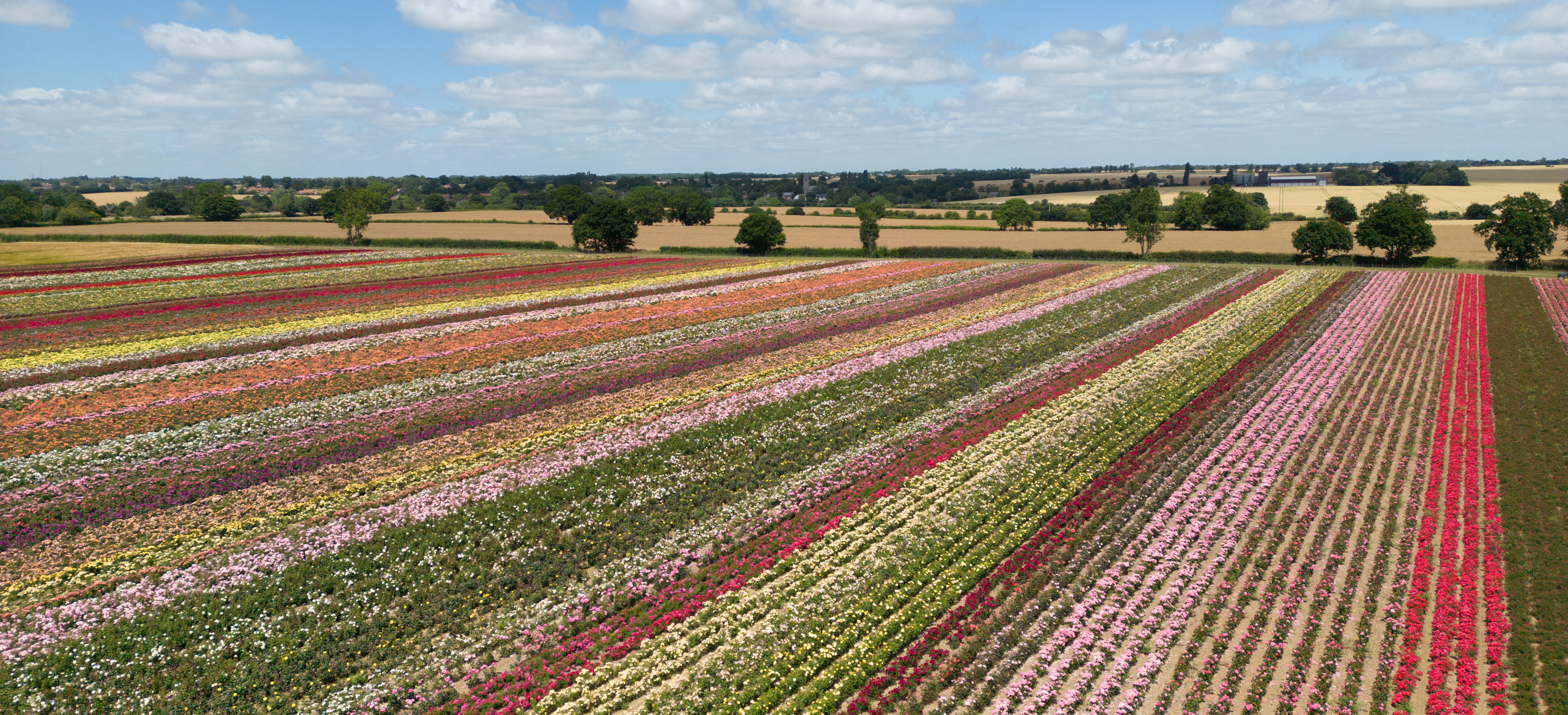
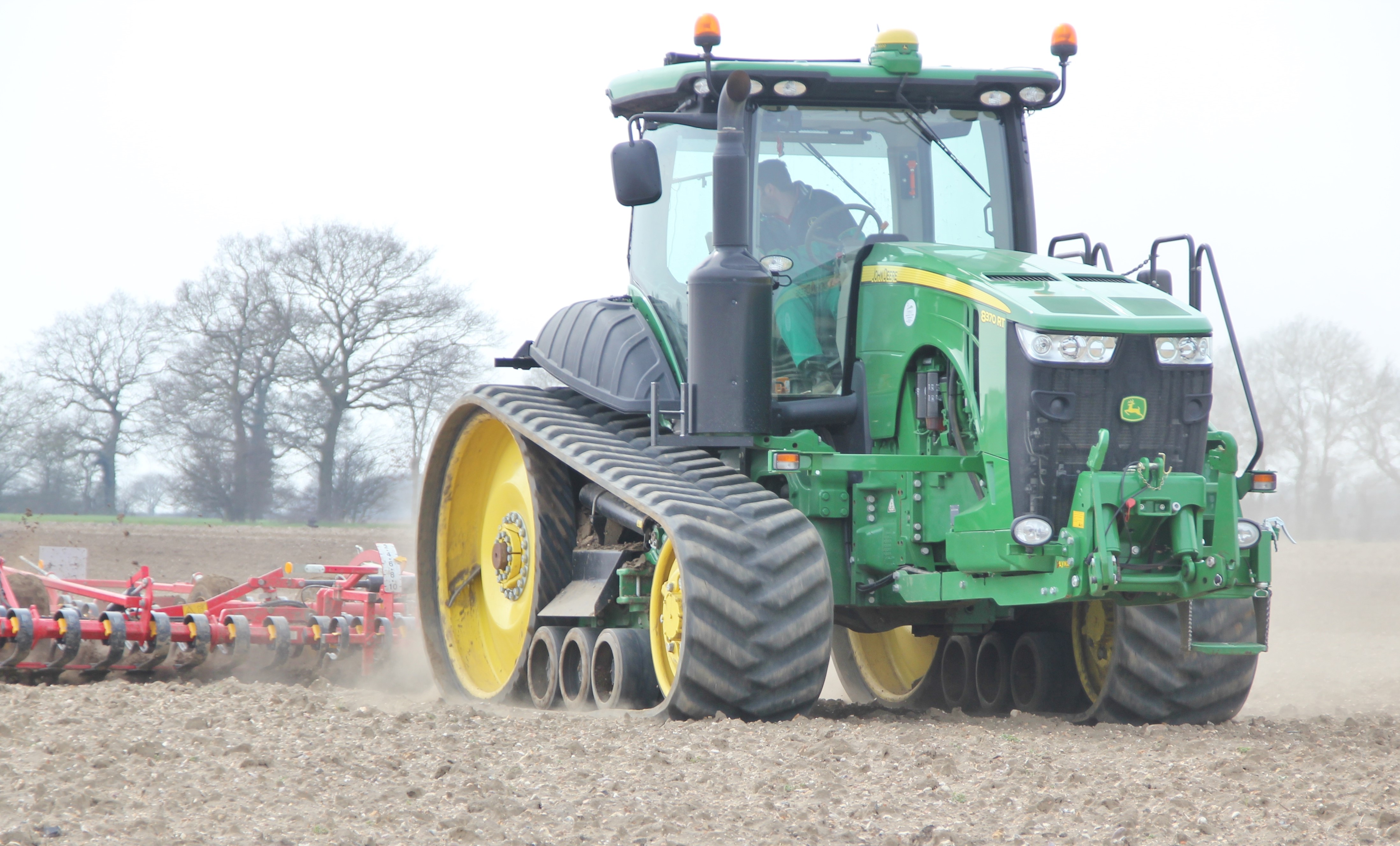
Soil Health
Where the growing environment allows, we also use predators to control pests.
Our tractors are on tracks, rather than wheels which reduces some impact on the soil. All waste plant material generated through the grading and trimming process goes onto a compost heap. This takes three years to rot and is then spread on the land where roses are not grown and cultivated in.
Plant Health
Wherever possible organic options are sought, this helps to promote strong hardy growth and increases flowering. Regular use improves health by strengthening plants for protection against disease.
Water and Energy
Since 2012 we have been fitting photovoltaic panels on production buildings and cold stores with additional power from a wind turbine. This energy is used to power our cold stores, heating & hot water tanks.
An ‘Eco Pond’ has been installed to increase storage capacity by capturing run off water from the Jacksons and South Green sites. Drainage water and run off from buildings is collected via underground pipes and chambers and pumped to the Eco Pond, where it is filtrated through reed beds before flowing into the main reservoir. The main reservoir then feeds 4 satellite ponds and tanks. 90% of surface run off water at our Weybread site is collected in a large pond and recycled through well points. We are building a new reservoir that will hold 23,000m3 of water and will be filled entirely from winter surface run off to support our field production.
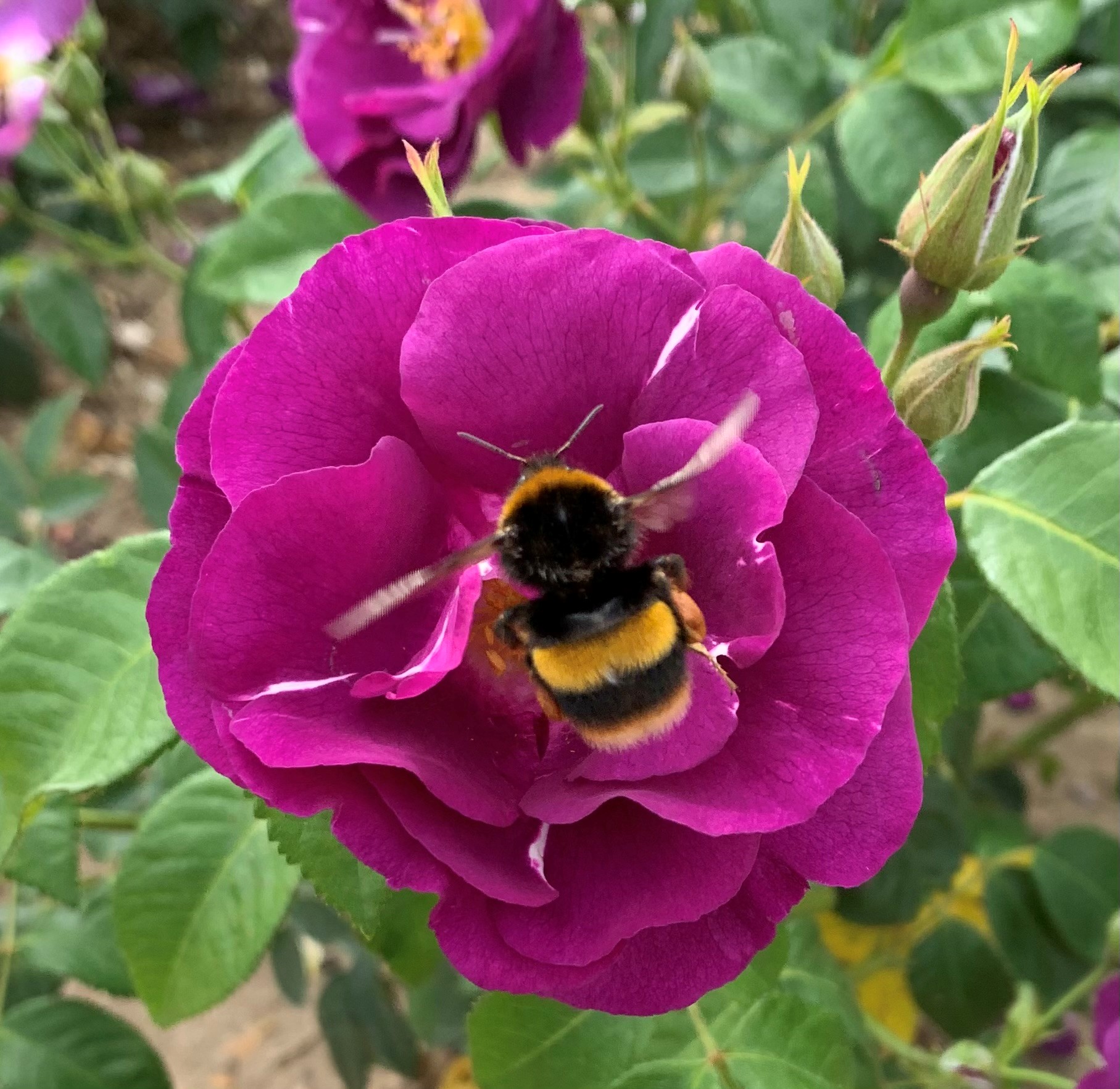
Wildlife
Wildflower meadows are sown on land not in rose production. Bird feeding areas are set into the headlands of fields which are in active rose production to provide important food resources (small seeds) for farmland birds, especially in autumn and winter. The flowering plants also benefit insects including bumblebees, solitary bees, butterflies and hoverflies.
Materials
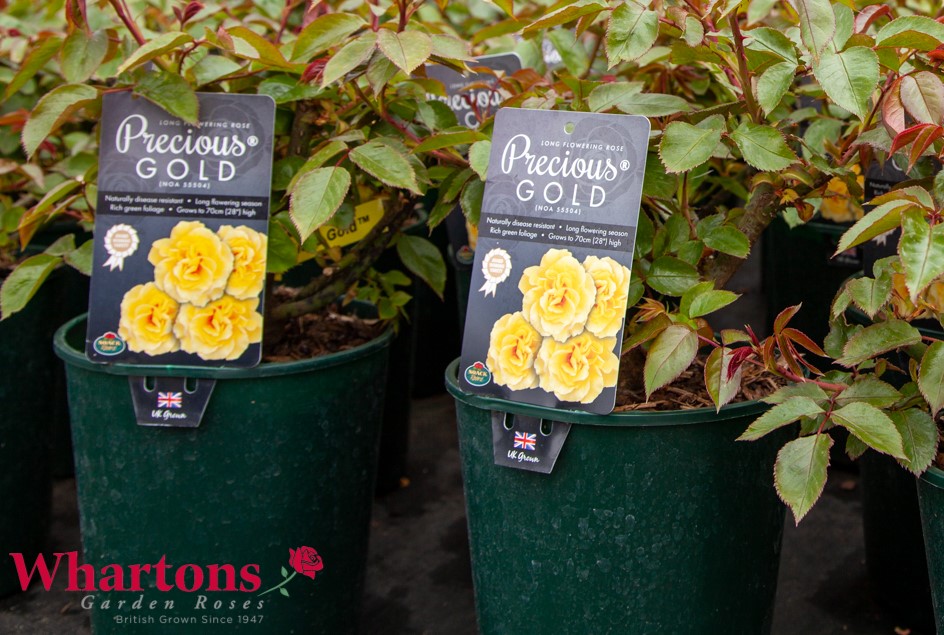
Pots and colour labels are recyclable (check locally)
Our roses start life in a field where they grow for two years, this process involves zero peat. In the autumn of year two they are lifted and potted for sales. We are using a compost mix which is lower in peat and higher in wood fibre and bark which combined with a bark topping, makes our plants 50% peat free. Our journey to being completely peat free for container production is underway with commercial trials being carried out to ensure good growth is maintained we meet legislative deadlines.
Company fleet is being converted to Electric and Petrol Hybrid as appropriate on renewal.
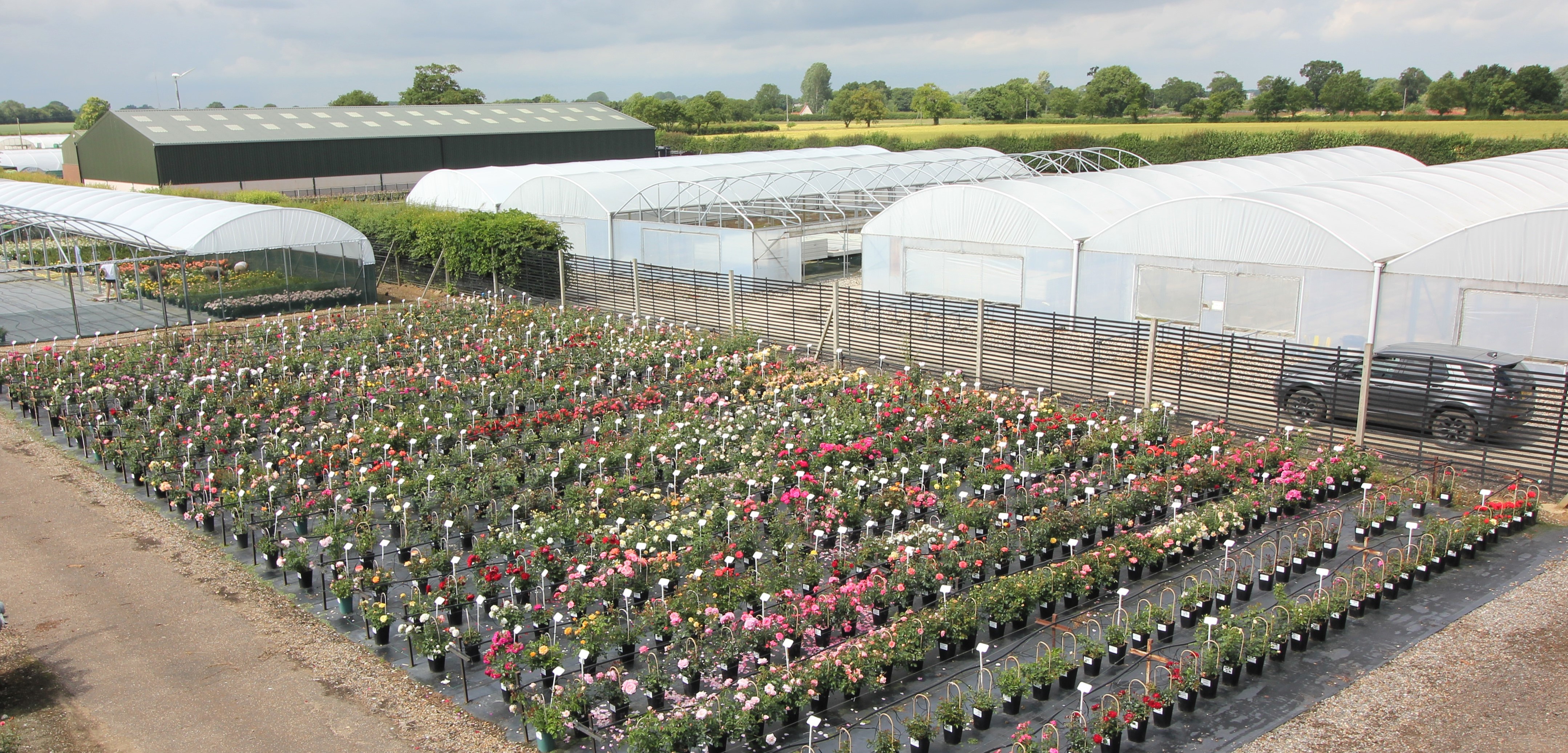
Breeding and variety selection
We work with breeders actively to develop the best performing rose varieties which are drought resistant, therefore requiring less water. A focus on improved health is a given which therefore reduces the need for chemicals in the garden environment.
